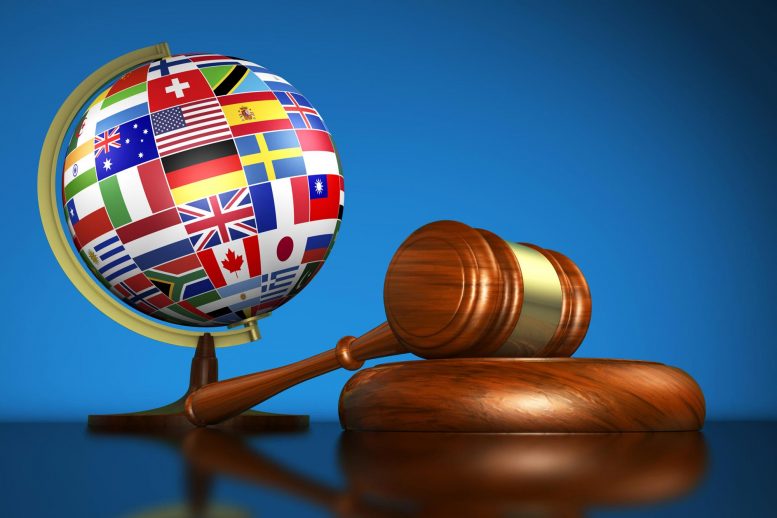
Most nations are not fulfilling their global lawful obligations throughout COVID-19 and other community health and fitness emergencies, reveals new exploration by a consortium of 13 primary international wellness regulation students, hosted by the Worldwide Method Lab (GSL) at York University.
In 2019, customers of the Worldwide Health Legislation Consortium analyzed key elements of the Intercontinental Health and fitness Polices (IHR) to authoritatively interpret what nations are legally permitted to do to each individual other all through long run community well being crises like Ebola and SARS.
This function became even extra suitable when the COVID-19 pandemic began spreading all over the world early this 12 months the Worldwide Health and fitness Law Consortium associates reviewed how countries reacted to the outbreak dependent on the International Wellbeing Regulations that lawfully bind 196 countries in how they stop, detect and answer to general public wellbeing crises.
Subsequently, during a convention in South Africa, this team of lawful professionals designed consensus statements that authoritatively interpret Report 43 of the IHR, which identifies the supplemental well being actions nations around the world can legally enact when responding to general public wellness risks, and Report 44, which outlines countries’ lawful duty to collaborate and guide one particular yet another in setting up nationwide public health and fitness techniques.
The consensus statements had been published now in the prestigious Global Organizations Law Overview.
Professor Steven J. Hoffman, director of the World wide Method Lab at York College, is senior creator on the two consensus statements, and Roojin Habibi, research fellow at the GSL and doctoral applicant at Osgoode Corridor Law University, is lead author on the consensus assertion that interprets Post 43 of the IHR.
“Many countries have taken overbroad steps, the two in the past and now in the course of the coronavirus outbreak, which show that the provisions within Article 43 of the Intercontinental Well being Regulations are not effectively recognized and probably not match for function,” says lead creator Habibi.
Underneath Short article 43 of the IHR, international locations are permitted to training their sovereignty in getting supplemental health and fitness steps to react to community overall health emergencies, presented that these measures are proportionate to the possibility at hand, aligned with human rights imperatives, and backed by scientific proof.
“COVID-19 has obviously revealed that right worldwide cooperation is expected to protect against infectious conditions from spreading throughout borders,” Habibi factors out. “Based on our analysis, we believe that that the world wide local community demands a widespread knowledge of the regulation at hand. We propose revision and clarification of legal obligations contained in these Content articles to aid collaboration and boost pandemic responses in the foreseeable future.”
In accordance to Short article 44, there is a frequent and shared responsibility among nations around the world to make it probable for each and every region to achieve the core general public wellbeing capacities recognized in the IHR, which is overseen by the Globe Well being Group.
“Most international locations in the entire world are currently violating their global legal obligations under Content articles 43 and 44 of the Global Wellbeing Restrictions,” notes Hoffman. “This suggests that the rules that were being supposed to tutorial governments’ responses to pandemics like COVID-19 are possibly misunderstood, toothless, or insufficient – most possible a mix of all 3. The Global Overall health Law Consortium’s analyses of the Intercontinental Health and fitness Restrictions that had been published these days will assistance deliver clarity to countries’ authorized obligations through international overall health emergencies, but finally these restrictions need to be urgently up-to-date to far better reflect the realities of the globalized environment in which we all dwell.”
The two statements released on December 3, 2020, are the initially consensus-based collaboration by associates of the World Health Regulation Consortium.
Reference: “The Stellenbosch Consensus on Authorized Countrywide Responses to Community Wellness Dangers – Clarifying Post 43 of the International Overall health Regulations” by Roojin Habibi JD MSc, Steven J. Hoffman JD PhD LLD, Gian Luca Burci JD PhD, Thana Cristina de Campos MPhil DPhil, Danwood Chirwa LLB (Hons) LLM PhD, Margherita Cinà JD/BCL LLM, Stéphanie Dagron Dr. iur. PhD, Mark Eccleston-Turner LLB (Hons) LLM PhD, Lisa Forman LLB MA SJD, Lawrence O. Gostin JD LLD (Hon.), Benjamin Mason Meier JD LLM PhD, Stefania Negri MPS PhD, Gorik Ooms Lic. Jur. PhD, Sharifah Sekalala LLB LLM DPhil, Allyn Taylor JD LLM JSD and Alicia Ely Yamin JD MPH, 2 December 2020, International Organizations Law Assessment.
DOI: 10.1163/15723747-2020023





More Stories
Unions launch legal challenge against law allowing agency workers to replace strikers | Business News
the Necessary Legal Dance Step to Outmaneuver Trial Lawyers
Texas law banning abortion takes effect Aug. 25 after Supreme Court judgment